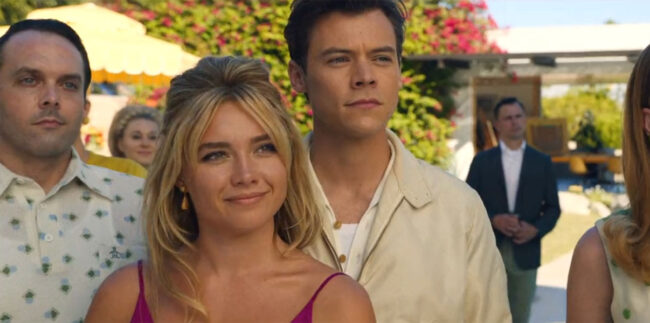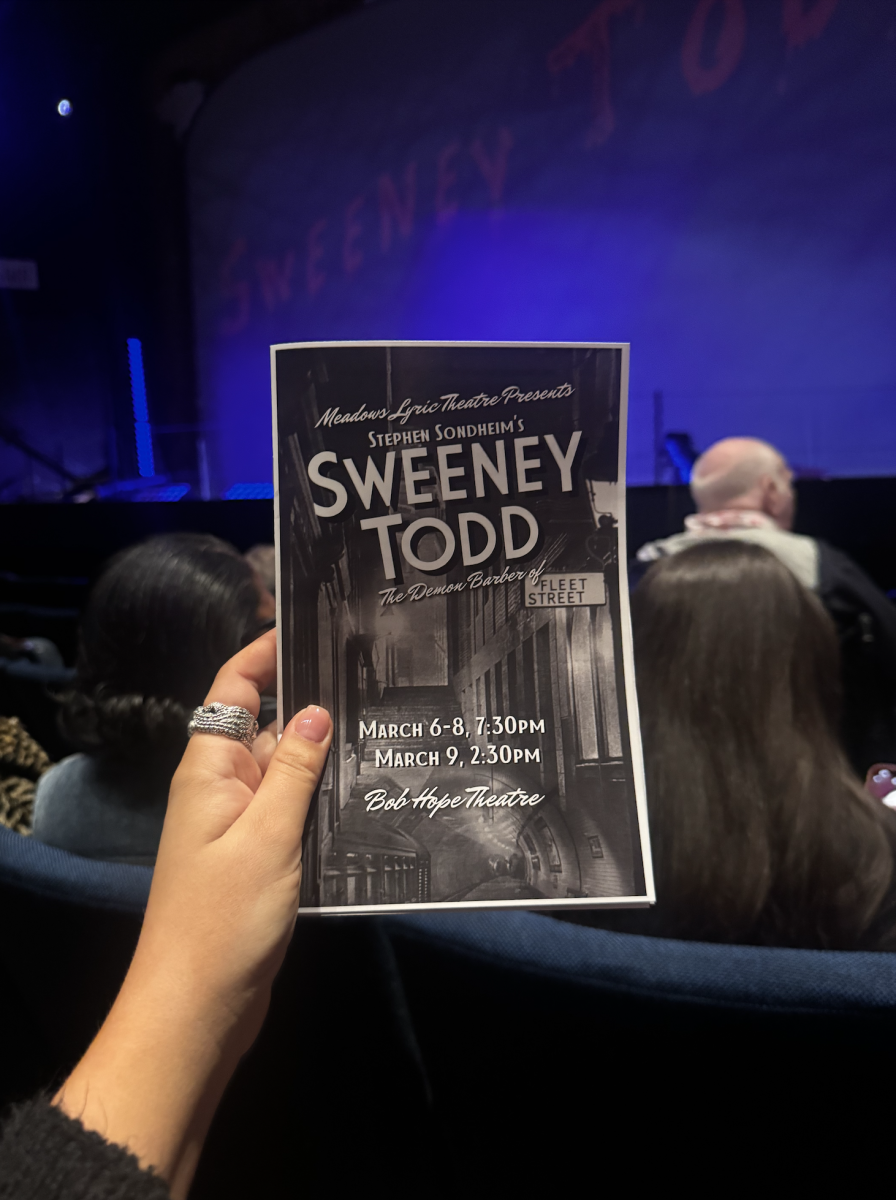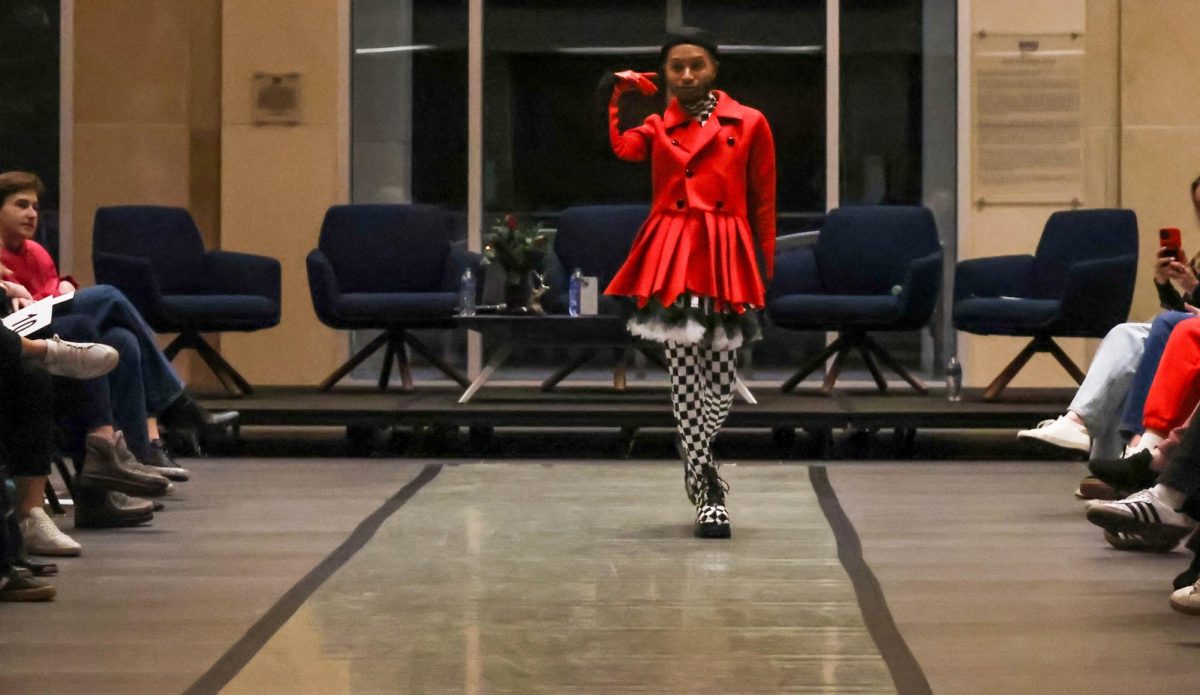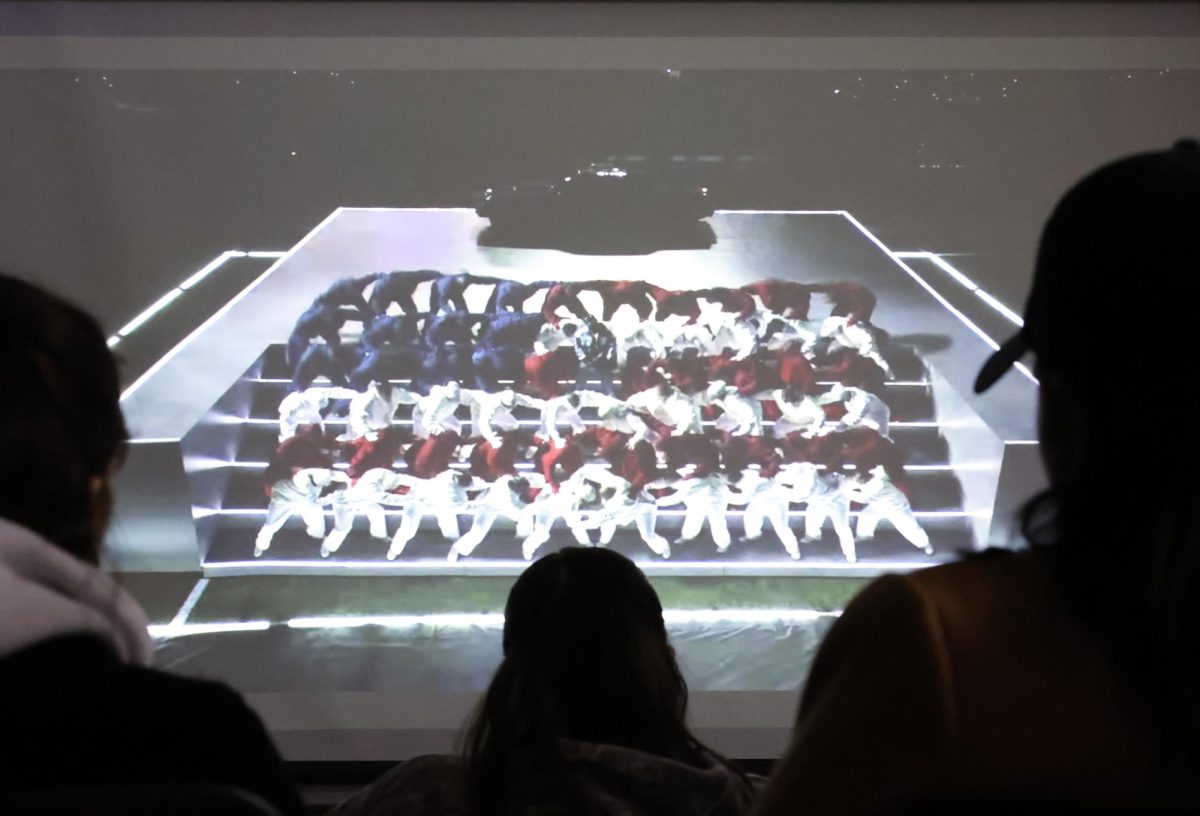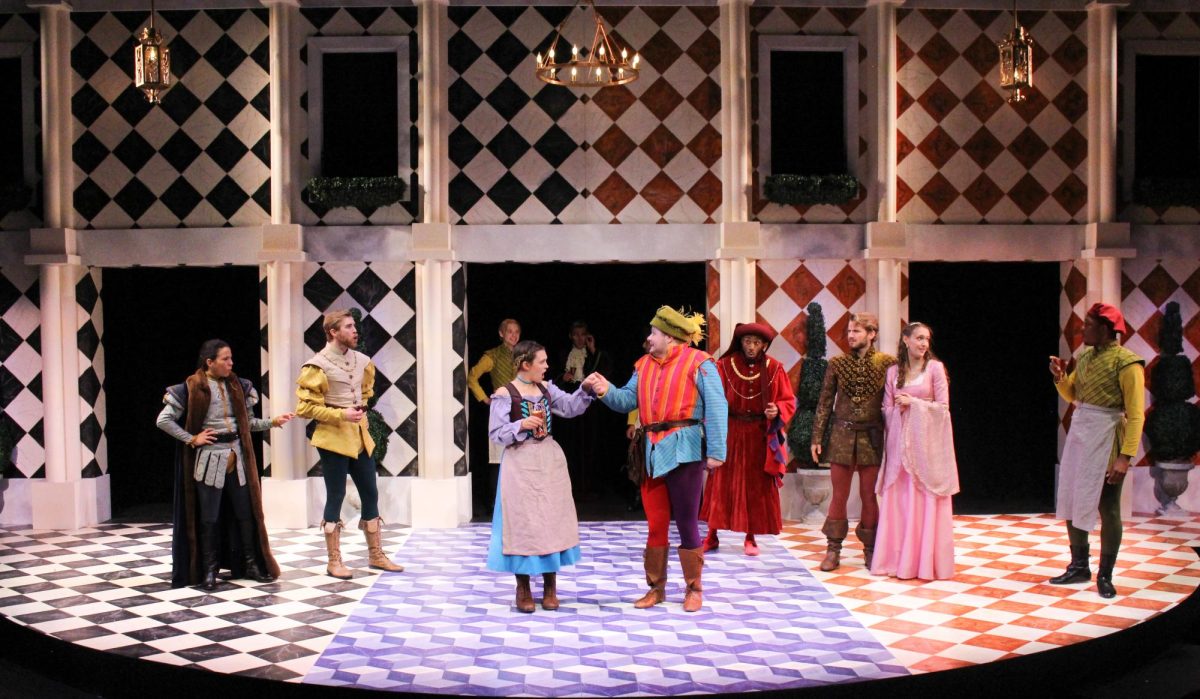Imagine you’re babysitting a seven-year-old. They’re really into coming up with elaborate stories, adding lots of unnecessary details, and creating imaginary worlds in their head. So you ask them to tell you one of these stories and realize you could somehow loosely make this tie back to an essay you have due for your Women & Gender Studies class. That’s what Olivia Wilde’s sophomore directing project, “Don’t Worry Darling,” feels like.
There’s no doubt something sketchy is going on from the beginning of the film. It takes place in The Victory Project, an idealized mid-century modern desert commune of sorts. Every morning, the wives kiss their husbands goodbye, sending them off on their drives to work at Victory Headquarters, a weird spaceship-esque contraption on top of a hill in the middle of the desert. The only instructions given to the wives is simple: don’t ask about what the husbands do at their jobs and don’t venture out to Headquarters (which any informed viewer would call terribly obvious foreshadowing).
Florence Pugh and Harry Styles play Alice and Jack Chambers, a married couple seemingly newer to the neighborhood but rapidly rising in social significance.
Pugh’s character, kind of out of nowhere, realizes that her surroundings are abnormal, and that’s basically where the storyline of the movie sits for a good hour and a half.
Despite all this, neither Wilde nor Styles are to blame for its flop. The direction was not terrible and the cinematography was gorgeous; Wilde’s acting performance was pretty lackluster, but as is anyone’s who places themselves as a significant role in their own film.
And it’s no surprise Styles’ performance read like the lead of a high school production of Hamlet – he was given the same line rephrased 17 times to work with! Besides his near cameo in “Dunkirk,” it was the poor guy’s acting debut, and his counterpart was one of the greatest actresses of recent history. If anyone was expecting an Oscar-worthy performance, you should have known better considering all the drama that surrounded the movie prior to its release.
Instead, the core of this bad apple is its juvenile script. Writer Katie Silberman worked with Wilde on “Booksmart” before. While that wasn’t objectively great writing either, in that project she still brought an awkward personality to the two leads that made it work. But that chemistry the actors found with Silberman’s writing under Wilde’s direction did not make its way to “Don’t Worry Darling.” The closest we got was with Pugh’s performance, who was arguably given the most to work with. As nearly every review has said, Pugh carried the film, and was clearly bought in to save its questionable plot more than anyone else. (Well, except for Nick Kroll. He was hilarious.)
Nothing about any of the dialogue in the entire film felt organic or normal. Sure, you could argue, “But Brooke! It’s set in a dystopian patriarchal society! Of course they all sound brainless!” And sure, you could try to make that point hold up in court, but a good script doesn’t need that kind of explanation or argument; if it was intentional, we would’ve gotten it immediately.
Where my real writing grievances lie is in the ending (and I’m warning you now, spoilers lie ahead). We knew from the beginning that whatever was happening at The Victory Project was not real, but what I expected was more explanation for why that mattered. Instead, I was left asking why.
Why did Styles’ character only have a really terrible American accent for half a scene? Why was there a plane crash? Why did the cabinets rumble all the time? Why didn’t we dig into the death of Wilde’s real-life children sooner than the last ten minutes of the film? Why did Gemma Chan’s character kill Chris Pine at the end? Why didn’t Pugh get pulled back into her real life the first time she went to Headquarters? Why was no one in Pugh’s real life asking about where she, a medical surgeon, was?
Most importantly, why did I waste two hours of my life watching a movie that had quite literally nothing to say about society except for “sexism is bad,” something I feel like we should already know?
And sure, there’s lots of answers that have been provided for what was trying to be said about society, incels, misogyny, social media, AI, and more. However, if this had really been a good movie, it would have gotten to all of these topics and goals without the audience having to make loose connections by themselves.
It’s not that I didn’t want to like the movie, because I really did. It just so happened to feel like it was written as they were filming, and after nearly two hours of Wilde having Pugh and Styles play out some weird fantasy, she remembered that this was supposed to be a psychological thriller. So she said, “Make the whole thing a simulation and explain nothing else!”
Ultimately, I give it two out of five stars. One for Miss Pugh, the other for Nick Kroll. I love you, Nick Kroll.



